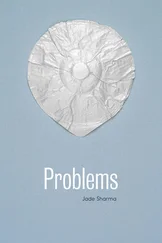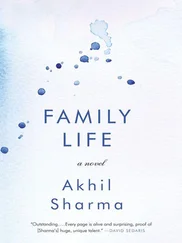If I had told Anita that I was visiting Asha at her school, she would have forbidden it. But I wanted to help Asha and believed it was not possible to do so with Anita nearby. I began going to Rosary School during Asha's lunch hour.
Waiting for Asha in Father Joseph's office, even knowing that I would not touch her or harm her in any way, I still felt ashamed and even criminal. Walking away with her beyond the reach of the school windows, I had the feeling that hundreds of eyes were watching us. But I never asked Asha to keep anything secret from her mother. She must have sensed Anita's hostility toward me and acted on her own.
Usually we went across the road only to eat dosas or chole bat-uras. I would eat half of mine and Asha would eat her own and what part of mine I did not want. As we talked, Asha drained two or three bottles of cold drinks. Sometimes other students in Asha's class escaped from the school and appeared at the restaurant to spend their change on cold drinks. To win Asha protection and friendship from them, I paid for their drinks or ice cream. Often when I visited Asha, a dozen boys and girls appeared at the restaurant and asked, "Uncleji, will you buy us something?"
My love for Asha made me candid. "Remember when we went to Mr. Gupta's for the wedding reception?" Asha nodded as she chewed. "I asked you if your father used to buy you ice cream and you said no, but that you liked to imagine he did." Asha continued chewing, though now she looked down at her plate. "Why do you like to think that?"
Asha did not answer for a while. "I miss him," she said finally.
It was harder to go from there. "But why do you like imagining that?"
"I don't."
"Were you just saying it, then?" When Asha did not answer, I said, "Your principal says you cry in school." Asha remained quiet.
"I cried all the time when my mother died." The silence continued. "You know why little babies weep?"
Asha shook her head no.
"The little babies are missing their families from their past lives.
The babies have old souls and the old souls have to shrink to become little babies. The tears loosen their memories so they can slide away. They cry at the life they have lost, and then they cry at everything they'll forget."
Asha looked up. Her eyes were shiny. She took a sip of water.
Asha was full of perplexing guilts. Once she said, "Mummy thinks I'm a thief" This was so strange I laughed. We were in the dosa restaurant. "She follows me around." I thought Asha could be referring to how Anita tracked Asha and me when we were in the flat simultaneously. "I've stolen two things only in my life. One was a candy, the other was a pencil."
Making Asha laugh was often my goal. "You are too little to steal the refrigerator. That's the only thing worth robbing. How big are your pockets?" I made her stand and turn out the pockets in her skirt. Then I stood and asked, "Can I fit in them?" I walked around her and lifted one foot toward the pockets. "You can't get a mouse in those." Asha had started laughing loudly. I sat down. "Your mother is strange. She follows around the people she loves. When she was in higher secondary, she loved her home economics teacher. She loved her so much she found out where the teacher lived and walked circles around the block where the woman lived."
Asha also wanted to learn magic spells so that she could bring her father back. But she was so afraid of ghosts that she hated the dark.
"Why would a ghost be here instead of in America?" I asked. "You think a ghost wouldn't get bored watching you in Hindi class?"
The more lunches I had with Asha, the more certain I became that Asha's oddness might have been exaggerated by Rajinder's death but was not created by it.
"If you can see something in your head as clearly as in life, then what's the difference between that and life?" she once asked.
"Close your eyes and imagine being pinched," I said. She did. I kicked her leg.
"Oh," she answered. Asha had not considered this.
Because of her oddities and since I loved her, at first I thought
she might be a genius. Helping Asha with her schoolwork, I soon realized she was not. She was slow with math. Her spelling was terrible.
Among the things I hoped to offer Asha was an adult viewpoint of her thoughts. "You're not stupid. Everybody thinks he's stupid. Besides, you don't have to be smart. You only have to be smart enough. How much is seventeen plus thirteen?"
"Thirty"
"That's more than enough brains to be a doctor."
At another time Asha said, "I think I am bad."
"Why?"
"I think if Mummy died, I would be an orphan and everybody would feel sorry for me and I would like that."
"People think anything. That's all right. It's good to think. Even strange thoughts. When I was your age I used to think I would sail a ship alone to England and steal back all the things the British had taken from India. I had never been on a boat in my life. I thought all the jewels and gold they had taken were in one room in a palace and I used to worry how I would be able to carry all these things to the boat by myself Sometimes I thought I would be caught and killed and become famous."
"But I don't like Mummy. That's why I don't mind being an orphan."
"Did you like me six months ago?" Asha laughed at this, and I felt bad that she had not liked me six months ago.
One week I went to see her four times. I went because I cared for Asha and helping her was an easy task that made me feel good about my generosity. But the idea of wanting to see Asha, remembering that I had rubbed my penis against her back, made me anxious, and the next week I did not go at all.
Ialso began talking more with Anita. Each night I confessed my political sins. These recountings began because I once returned home and found something intimidating in Anita's sullen-
ness as she mended a sleeve of Asha's school jacket. Sensing her lurking anger I decided to deflect it and told her what crimes I had committed that day on Mr. Gupta's behalf. I thought that providing her with something to rage about openly would be a way to keep us from the topic of what I had done to her.
My confession usually occurred in the living room, after the English news. I would sit alone on the sofa beneath the fluorescent tube light. Anita and Asha sat across from me on the love seats. Sometimes I confessed in the common room with all of us sitting on the floor. And at least twice I did so on the roof, where Anita and Asha slept because it was June and load shedding meant there might be no electricity and no turning ceiling fans for fourteen or twenty hours at a time.
"I went to a hotel this afternoon," I might begin, as if reciting a list of facts. If I started with anything more complicated than a fact, I became nervous. "The Oberoi. A five-star. Mr. Bajwa was already there, waiting in a room."
"How did you know which room?" At the beginning of my confession, Anita was also anxious, and this manifested itself in interrogation which appeared intended to catch me in a lie. I did not mind being questioned, since it allowed me to show I was hiding nothing.
"I asked for the hotel manager's party, because rooms and meals given out free are budgeted under the hotel manager's name." I looked at Anita to see if she had more questions. "The Oberoi doesn't let autorickshaws enter the driveway, only taxis, so I had to get out in front of the hotel and walk up the driveway, which is sloped. The lobby is four or five times bigger than this flat. It's sealed on one side with glass and you can see their swimming pool."
"How big is a swimming pool?" Asha asked.
"As large as our entire compound." I think Asha was allowed to witness these confessions because Anita wanted her to dislike me. But I met Asha often enough during her school lunch hour that I think she saw those nightly confessions as part of a larger conversation.
Читать дальше












